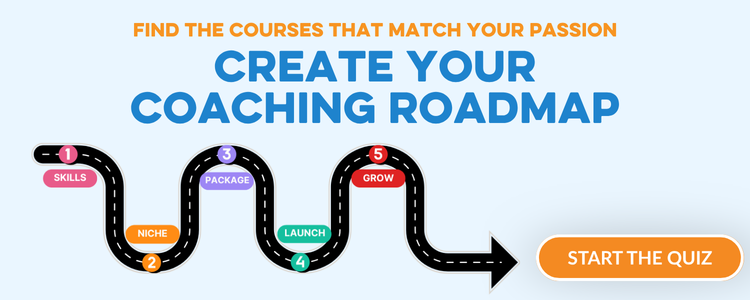Cultivate a Coaching Mindset: Enhance Your Skills
Imagine this: You’re in a session, and your client suddenly experiences a breakthrough. The joy on their face is palpable, and you feel a surge of fulfillment. What just happened? The power of a coaching mindset.
Why does a coaching mindset matter? It’s the cornerstone of effective coaching. It’s not just about acquiring skills; it’s about transforming how you see the world and connect with others.
A coaching mindset is your compass. It guides you as you foster deep, meaningful connections with your clients. It’s what helps you stay present, curious, and open—a combination that invites authentic growth and transformation. Embracing this mindset allows you to create a safe space where clients feel heard, valued, and inspired to explore their potential.
Whether you’re embarking on your coaching journey or seeking to deepen your practice, cultivating a coaching mindset will elevate your life coaching skills. Let’s delve into how you can embrace this powerful approach and watch your impact blossom.
What is a Coaching Mindset and Why It Matters
A coaching mindset is an approach to interacting with others that focuses on guiding, supporting, and empowering them to reach their potential. It embodies curiosity, empathy, active listening, and a belief in the client’s ability to find answers within themselves. This mindset matters because it transforms the coaching dynamic from directive to collaborative, enabling deeper insights and sustainable growth.
Why It Matters:
- Empowerment: By adopting a coaching mindset, you’re not just providing solutions; you’re helping clients develop skills to solve problems independently.
- Trust Building: Clients feel valued and respected when they are listened to and understood, fostering a trusting relationship.
- Sustainable Change: It’s not about short-term fixes; it’s about long-term development. Clients become more self-sufficient and motivated.
How to Develop a Coaching Mindset
Cultivating a coaching mindset is a continuous journey that involves self-reflection and practice. Here are some steps to get started:
Self-awareness: Start by understanding your own biases and assumptions. Reflect on how these might affect your interactions.
Active Listening: Practice listening not just to respond, but to understand. This involves observing body language and picking up on non-verbal cues.
Ask Open-ended Questions: Encourage exploration by asking questions that prompt deeper thinking. For example, “What options have you considered?” rather than “Why don’t you just do this?”
Embrace Curiosity: Approach each session with genuine interest. Replace judgment with wonder about the client’s experiences and ideas.
Practical Applications in Coaching Sessions
In coaching sessions, the application of a coaching mindset can transform the conversation.
Example Situations:
- Goal Exploration: Instead of directing a client toward a goal, facilitate a brainstorming session where the client evaluates potential paths. Encourage them to weigh the pros and cons of each option through guided questioning.
- Overcoming Obstacles: When a client encounters a challenge, resist the urge to provide solutions outright. Instead, ask, “What has worked in the past?” or “What strengths can you draw upon?”
- Feedback Delivery: When providing feedback, frame it as an opportunity for growth. Use phrases like, “I noticed that you have a real knack for detail. How do you think this can help you moving forward?”
Building Stronger Client Connections
A coaching mindset fosters deeper, more meaningful relationships.
- Consistent Check-ins: Regularly touch base with clients about their progress and feelings, showing genuine interest beyond the structured sessions.
- Celebrate Milestones: Acknowledge not just major achievements, but also incremental progress. This validation strengthens the client’s sense of capability.
- Shared Learning: Position yourself as a partner in the journey. For example, share relevant experiences or lessons you’ve learned, humanizing the interaction.
The Impact on Personal Growth
Embracing a coaching mindset doesn’t only benefit your clients—it significantly impacts your own development.
Benefits to You:
- Enhanced Empathy: Frequent exposure to diverse perspectives deepens your understanding and connection to others.
- Improved Communication Skills: Regular practice of active listening and thoughtful questioning hones your ability to communicate effectively across various settings.
- Increased Resilience: Witnessing transformations and navigating challenges cultivates patience and resilience in your own life.
The Neuroscience Behind a Coaching Mindset
Understanding the science behind why a coaching mindset works can deepen your appreciation for its power. When we approach others with curiosity and empathy, we activate mirror neurons in both our brain and theirs. These neurons help us understand and connect with others’ experiences.
Additionally, when clients feel heard and understood, their brains release oxytocin—often called the “trust hormone.” This creates a neurochemical foundation for deeper connection and more effective coaching relationships.
The coaching mindset also engages the prefrontal cortex, the brain region responsible for executive functions like problem-solving and decision-making. By asking thoughtful questions rather than providing direct answers, you help clients strengthen these neural pathways, leading to better long-term outcomes.
Overcoming Common Challenges
Developing a coaching mindset isn’t always easy. Here are some common challenges and how to address them:
The Advice-Giving Trap: Many new coaches struggle with the urge to give advice. Remember, your role is to guide clients to their own insights. When you feel the urge to advise, pause and ask a question instead.
Impatience with the Process: Sometimes progress feels slow. Trust the process and remember that sustainable change takes time. Celebrate small wins along the way.
Managing Your Own Emotions: When clients share difficult experiences, it’s natural to feel emotional. Practice self-regulation techniques and remember that your role is to hold space, not to fix everything.
Transform Your Practice
Reflective Takeaway
A coaching mindset is more than just a technique; it is a foundational element of effective coaching that leads to transformative experiences for both clients and coaches. Through mindful practice, you can foster an environment where clients are empowered to grow, and in turn, so are you.
The journey of cultivating a coaching mindset is ongoing. Each client interaction offers an opportunity to deepen your skills and strengthen your ability to create meaningful change. Remember, the most powerful tool you have as a coach isn’t a specific technique or framework—it’s your ability to connect authentically with another human being and believe in their potential.
Challenge
This week, challenge yourself to approach every conversation—not just coaching sessions—with a coaching mindset. Notice how curiosity and active listening change the quality of your interactions. Pay attention to how others respond when they feel truly heard and understood.
Start transforming your coaching approach today by enrolling in our Master Mindset Life Coaching Certification (60% off!) to master the mindset that enhances client success. Our comprehensive program will help you develop not just the skills, but the mindset that creates lasting transformation for your clients.
Related reading:








